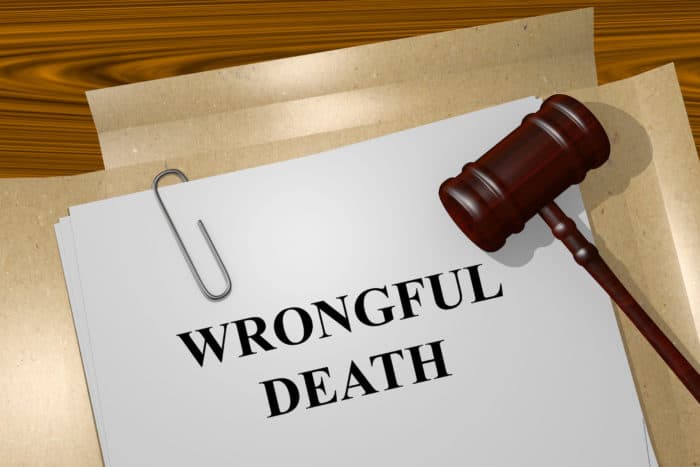
Texas Wrongful Death Lawyers
Losing a loved one is a life-altering experience that can be extremely difficult to get over. This is especially true in cases where the death could have been prevented had more care been taken or safety protocols provided. A loved one’s death is often accompanied not only by emotional distress but also by hefty expenses such as funeral and burial costs.
You shouldn’t have to go through the aftermath of a loved one’s wrongful death alone. The compassionate personal injury attorneys at Branch & Dhillon are here to help you gain compensation for the damages you incur after a loved one’s death. We understand that the experience is painful, and we are willing to work with you every step of the way.
What is a Wrongful Death?
Wrongful death is a death that results from another person’s negligent action, inaction, or intent to harm. Wrongful death claims can be made when death was caused by negligent actions such as:
- Medical malpractice
- A plane or automobile crash
- Failure to provide adequate security
- Criminal behavior
- Injury at Work
- Premises Liability
In these cases, the surviving family members may be eligible for monetary compensation for emotional, financial, and mental suffering that came as a result of the death.
Damages in a Wrongful Death Case
Examples of damages that may be awarded in a wrongful death case include:
- Loss of financial support
- Loss of consortium, love, and affection
- Funeral and burial expenses
- Other damages
What Determines Financial Loss in a Wrongful Death Case?
Several factors are weighed when determining how much compensation to award after a loved one’s wrongful death. The court may ask about the following to make a fair estimate on how much compensation should be awarded for damages:
- The age of the deceased
- The character of the deceased
- The health condition of the deceased before he/she passed away
- The deceased’s earning capacity and wages at the time of death
- The deceased’s Life expectancy
- The circumstances of the family after the death of the decedent
- The loss of future income from the deceased
- The loss of parental guidance
Expert Testimony
Sometimes, a financial advisor will need to be brought in to help determine the monetary losses after a loved one’s death. This usually pertains to cases where the deceased was not working at the time of the accident. For example, a stay-at-home mom is not considered employed, but she still provides services and care to her household.
Punitive Damages
 Punitive damages are awards given in cases of malicious wrongdoing or serious neglect. These damages are used more as a punishment for the wrongdoer, and they’re meant to deter others from engaging in the same behavior.
Punitive damages are awards given in cases of malicious wrongdoing or serious neglect. These damages are used more as a punishment for the wrongdoer, and they’re meant to deter others from engaging in the same behavior.
Can you Sue for Punitive Damages in Texas?
In the state of Texas, immediate family members are allowed to sue for punitive damages. This only applies if there is clear evidence that gross negligence, harmful intent, or a malicious omission of action lead to their family member’s death.
Survival Action Cases
A survival action claim is a way to gain compensation for the losses to one’s estate suffered prior to the death of an individual. Survival claims are often treated as personal injury lawsuits and are generally handled by a representative of the individual’s estate. These lawsuits focus on awarding compensation for the damages and suffering of the decedent before they passed. Certain criteria is taken into consideration in a survival action lawsuit, including:
- The degree of the victim’s consciousness after the accident and before their death
- The severity of pain they felt
- The realization of impending death
- Duration of the individual’s suffering
A family representative may be able to file both a wrongful death lawsuit and a survival claim lawsuit. These lawsuits are treated separately; the survival claim lawsuit is tried as a personal injury case and treated as if the individual was still alive.
Texas Wrongful Death Laws
All states handle cases of wrongful death a bit differently. For the state of Texas, wrongful death laws are outlined in the Texas Statutes section 71.007. These laws define who can seek compensation for wrongful death and whether or not they are allowed to sue for punitive damages.
Who Can Sue for Wrongful Death?
Immediate family members of the deceased are permitted to sue for wrongful death compensation. Texas defines immediate family members as the individual’s spouse, children (both biological and adopted), and parents. If the immediate family members do not file a wrongful death claim, a personal representative or executor of the individual’s estate may file a claim for them. However, if the family specifically requests that no lawsuit be filed, then this right is taken away from the representative.
Mental Anguish Claims
 Mental anguish is defined as a high level of stress or distress that results from an accident or crime. The pain from mental anguish is psychological, not physical. Loved ones of the deceased may be eligible for compensation for mental anguish in a wrongful death case. Emotional distress may include the following:
Mental anguish is defined as a high level of stress or distress that results from an accident or crime. The pain from mental anguish is psychological, not physical. Loved ones of the deceased may be eligible for compensation for mental anguish in a wrongful death case. Emotional distress may include the following:
- Anxiety
- Distress
- Fear
- Grief
- Emotional trauma
- Depression
There a few different types of mental anguish claims that you can file in the state of Texas. Each of these claims is handled differently and require the plaintiff to prove different evidence supporting their claim.
Bystander Claim
Bystander claims can be filed when a family member witnesses the death firsthand. Most of these claims are awarded compensation, as it’s easy to see how witnessing a loved one’s death can lead to emotional trauma. The plaintiff must be able to prove that they saw the decedent get killed, experienced mental anguish as a result, and were closely related to the deceased.
Intentional Infliction Claim
Intentional infliction claims are a little harder to prove, as the plaintiff has to prove that the defendant intended to cause emotional distress. This does not include insults, threats, or annoyances, which are commonplace occurrences in the workplace and in everyday life; the actions of the defendant have to be malicious or reckless in nature.
Wrongful Death Claims for Unborn Babies
Wrongful death cases that deal with unborn babies are handled differently in each state. 40 US states recognize an unborn child as a person in these cases, and the other 10 do not.
Texas does allow wrongful death suits to be filed for an unborn baby’s death. To win a wrongful death claim, the mother must be able to prove the following:
- The unborn child died because the mother was killed before giving birth; or
- The mother survived unharmed, but the accident caused the unborn child to not survive.
The wrongful death of an unborn child due to medical malpractice, prescription drug error, or improper actions of the mother are tried under different laws in the state of Texas.
Wrongful Death Attorneys
If your loved one has passed away due to the negligence or malicious actions of another, you shouldn’t have to face the aftermath alone. The accomplished personal injury attorneys at Branch & Dhillon, P.C. can help you claim the compensation you deserve for your loved one’s wrongful death. With our no-win, no-fee policy, you will be able to focus on rebuilding and moving on after the wrongful death of a loved one. Contact us today for a free consultation.

